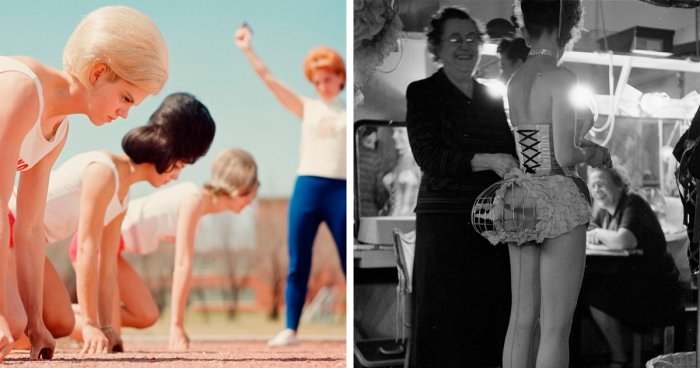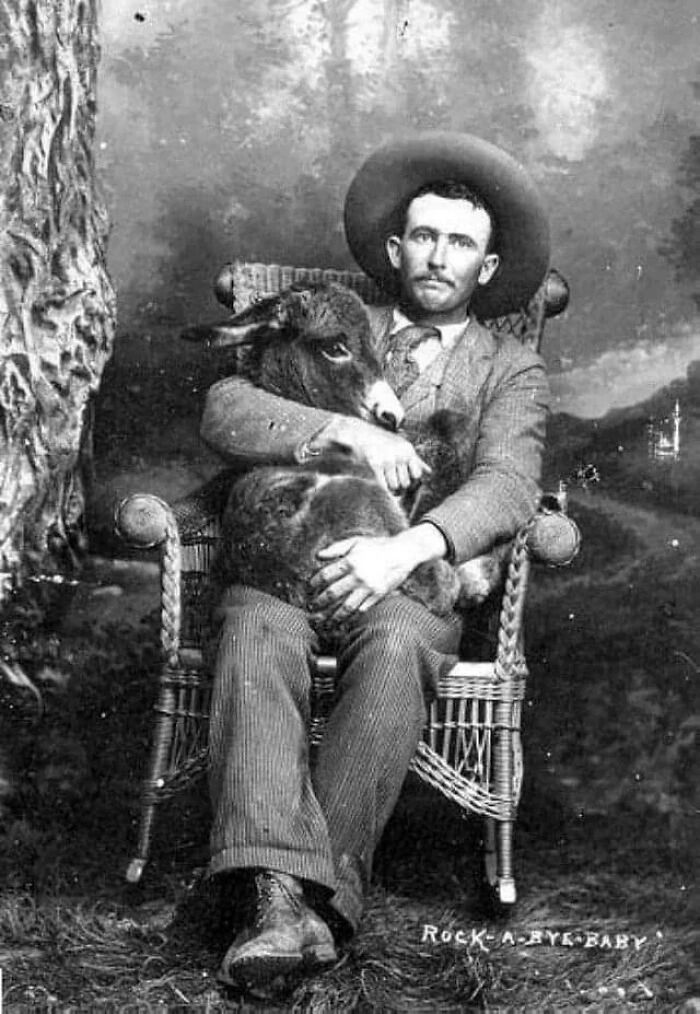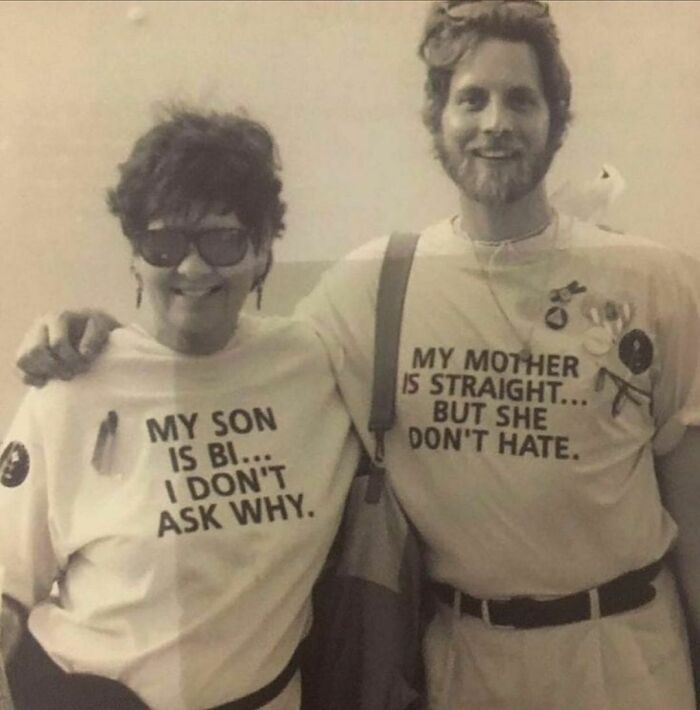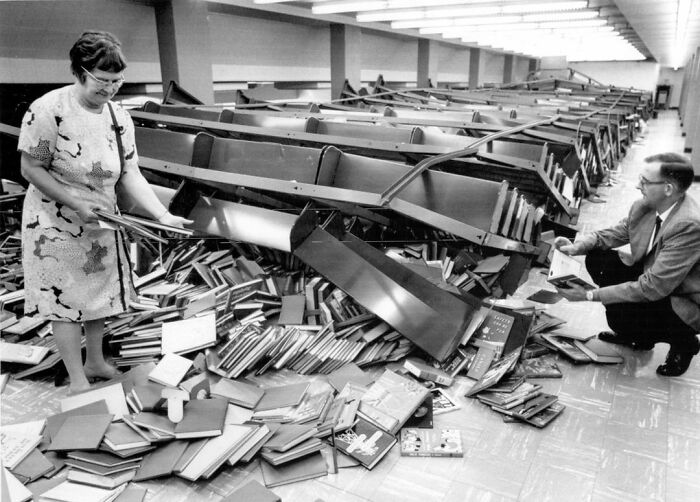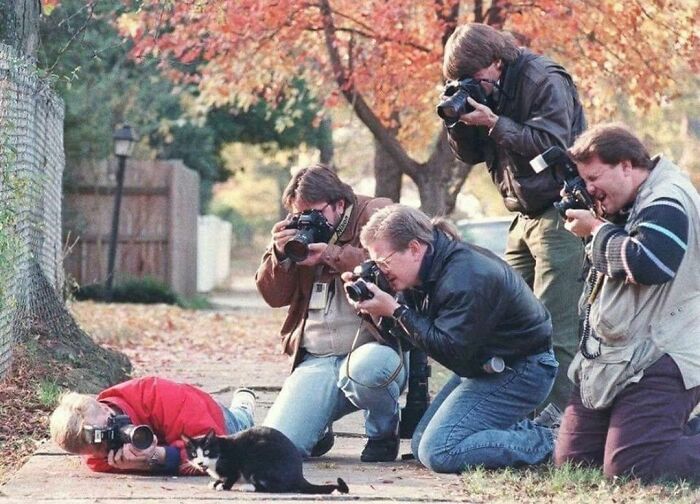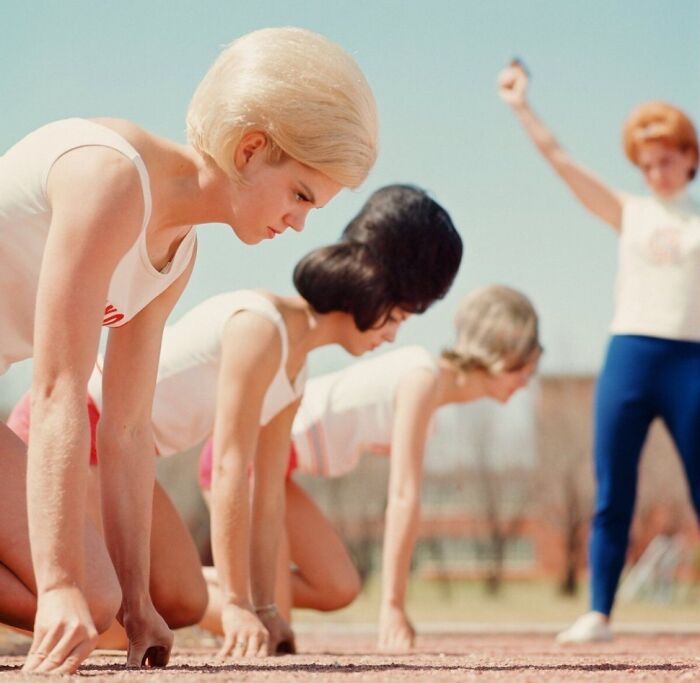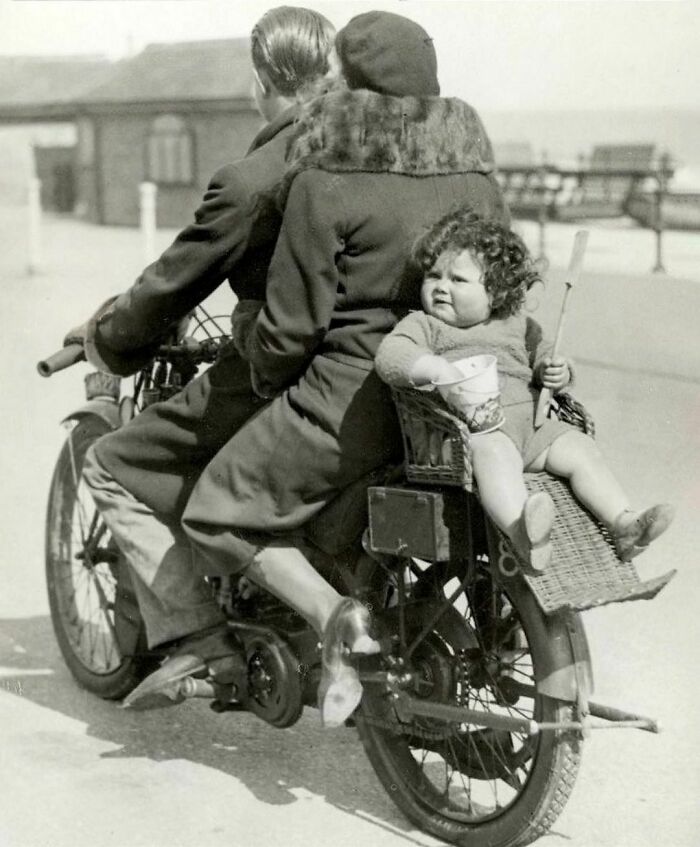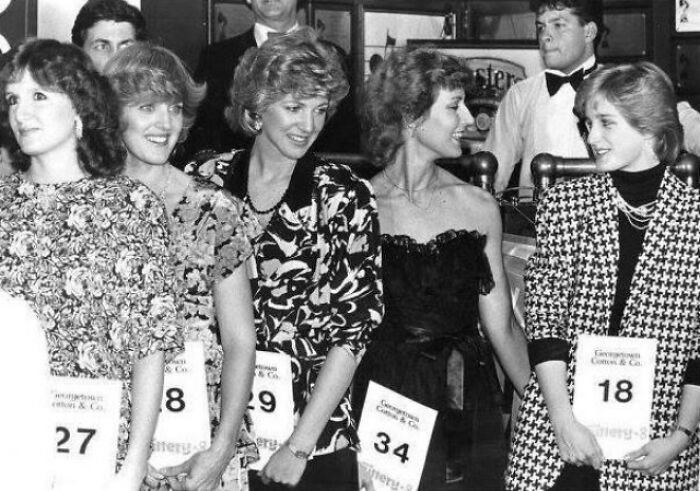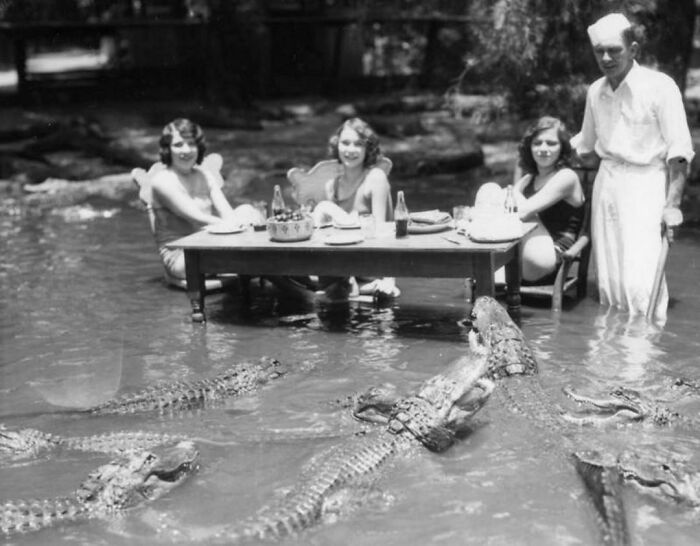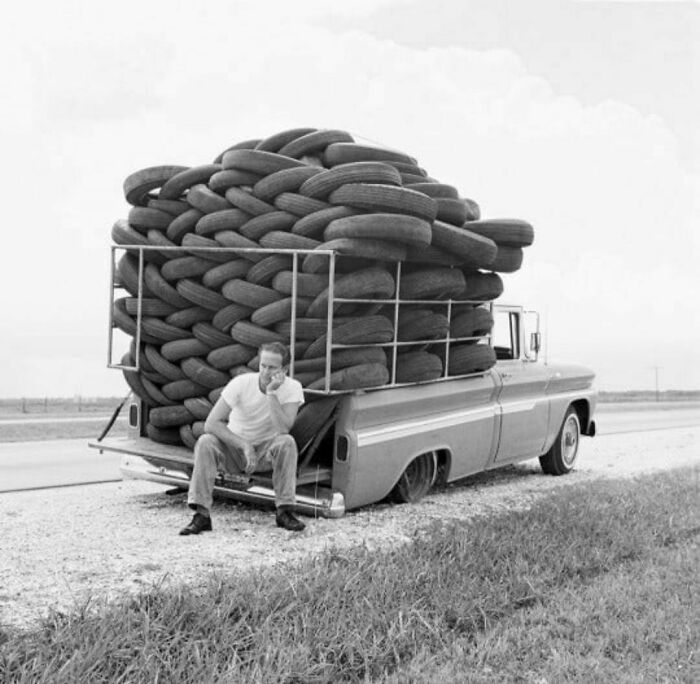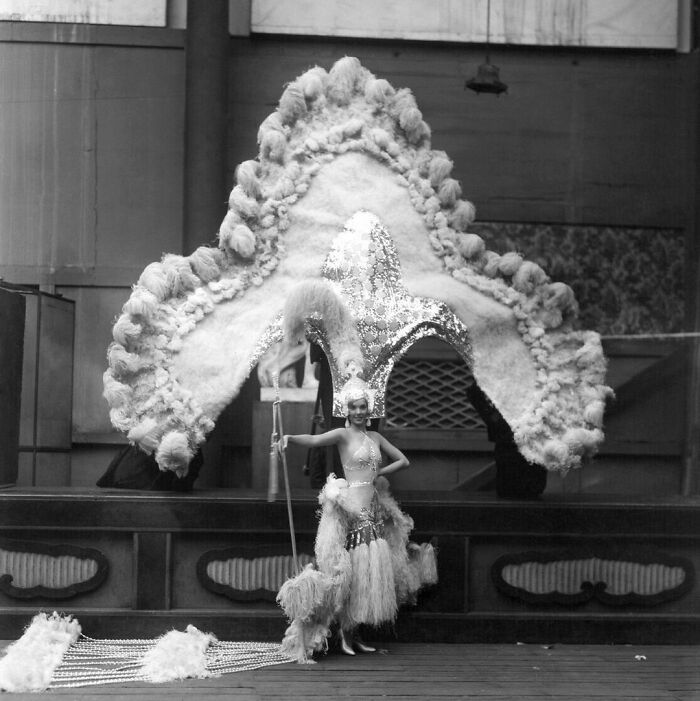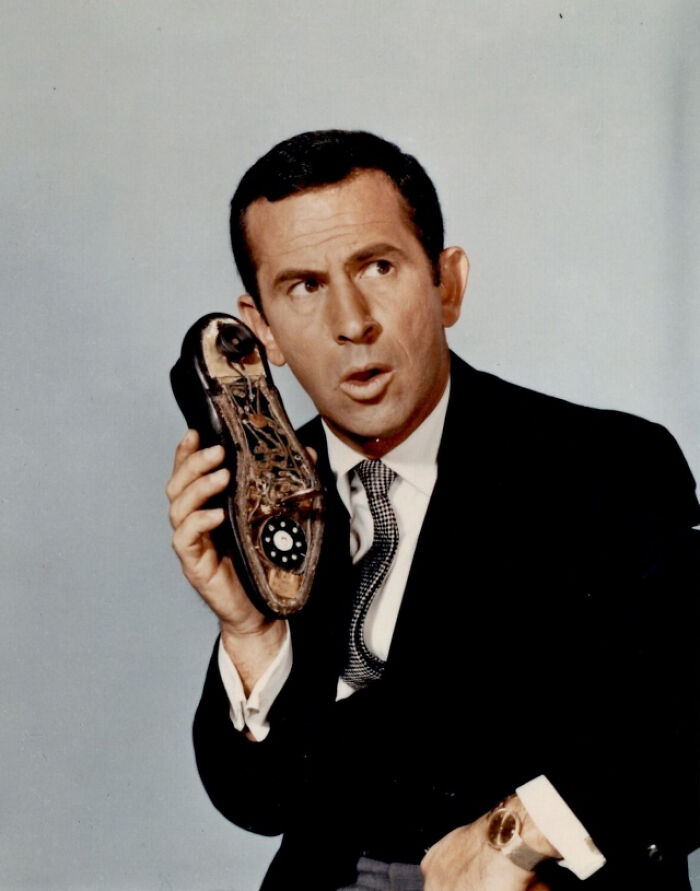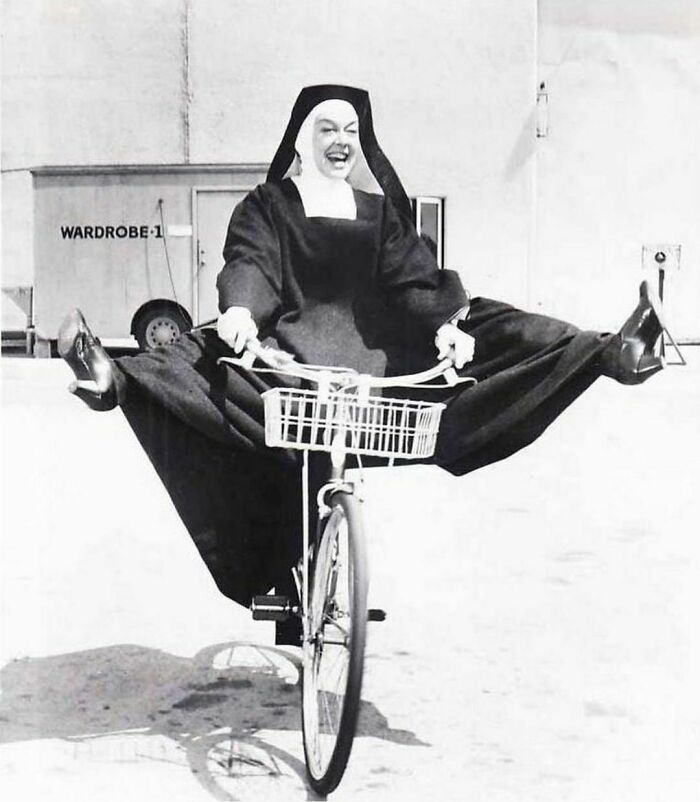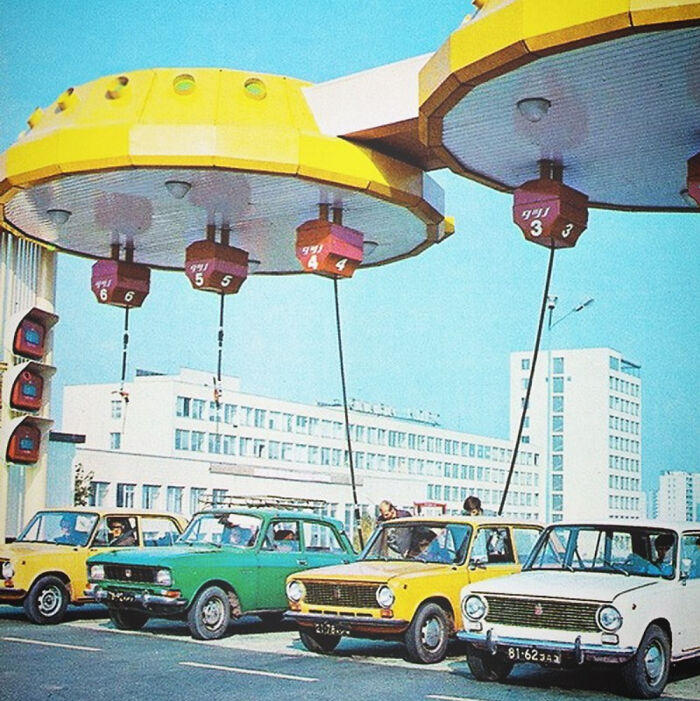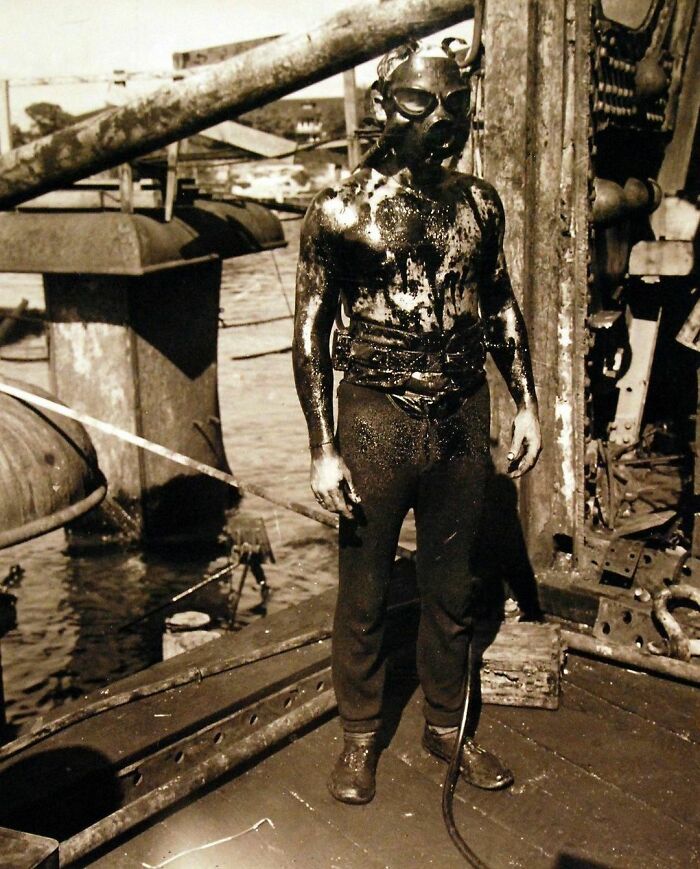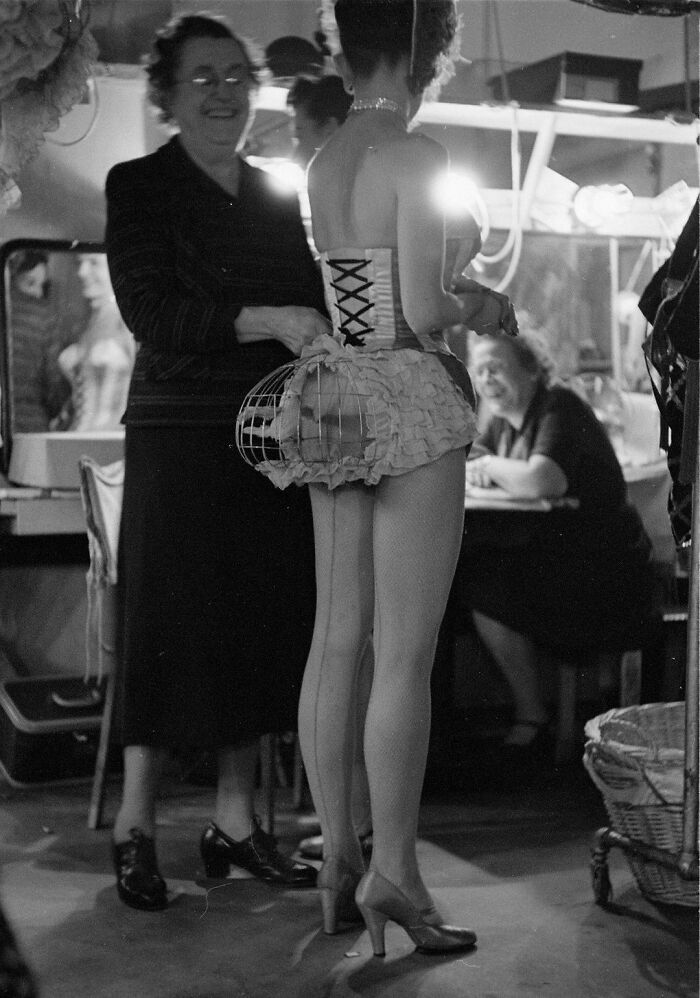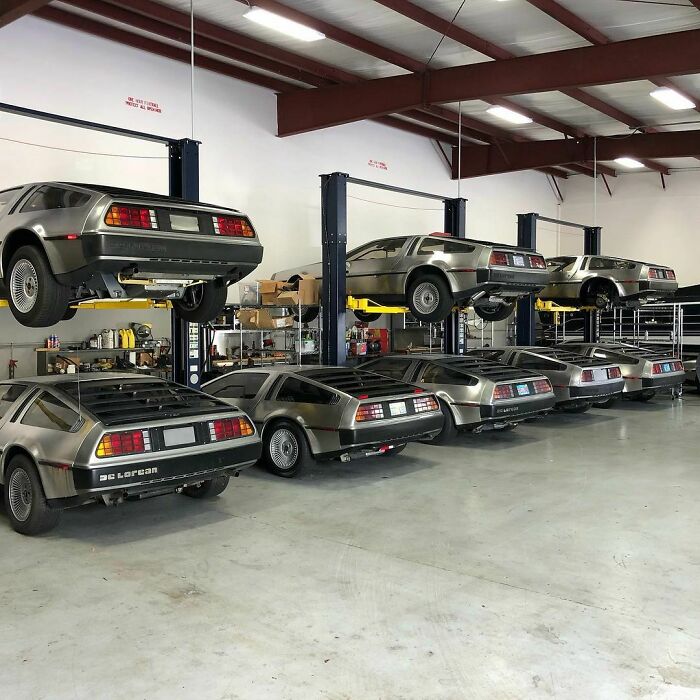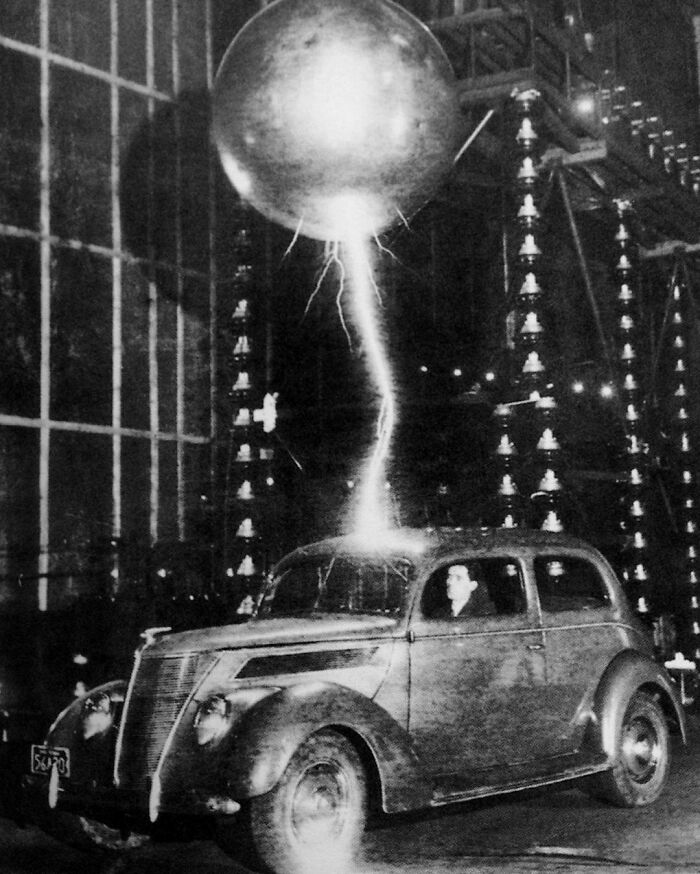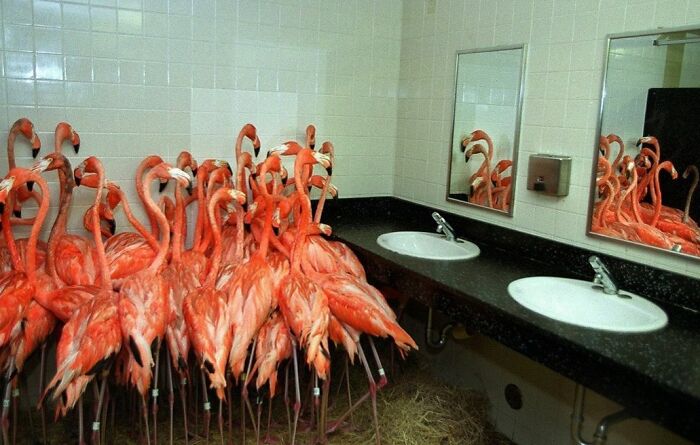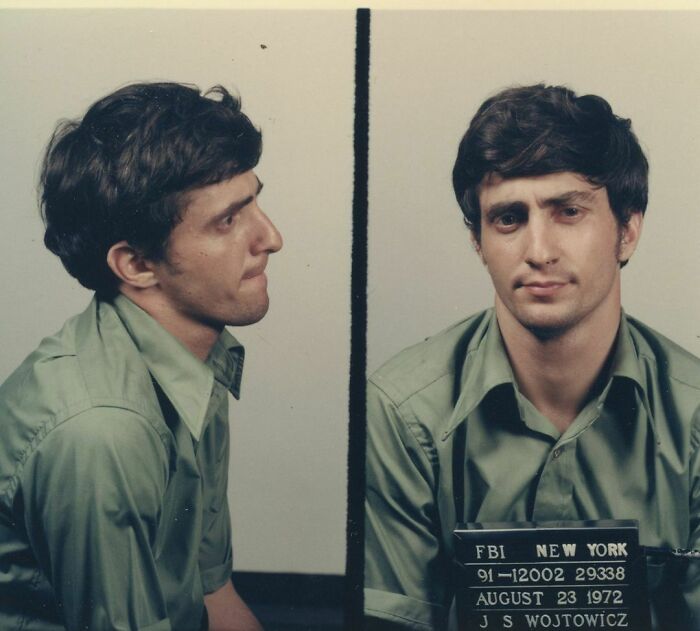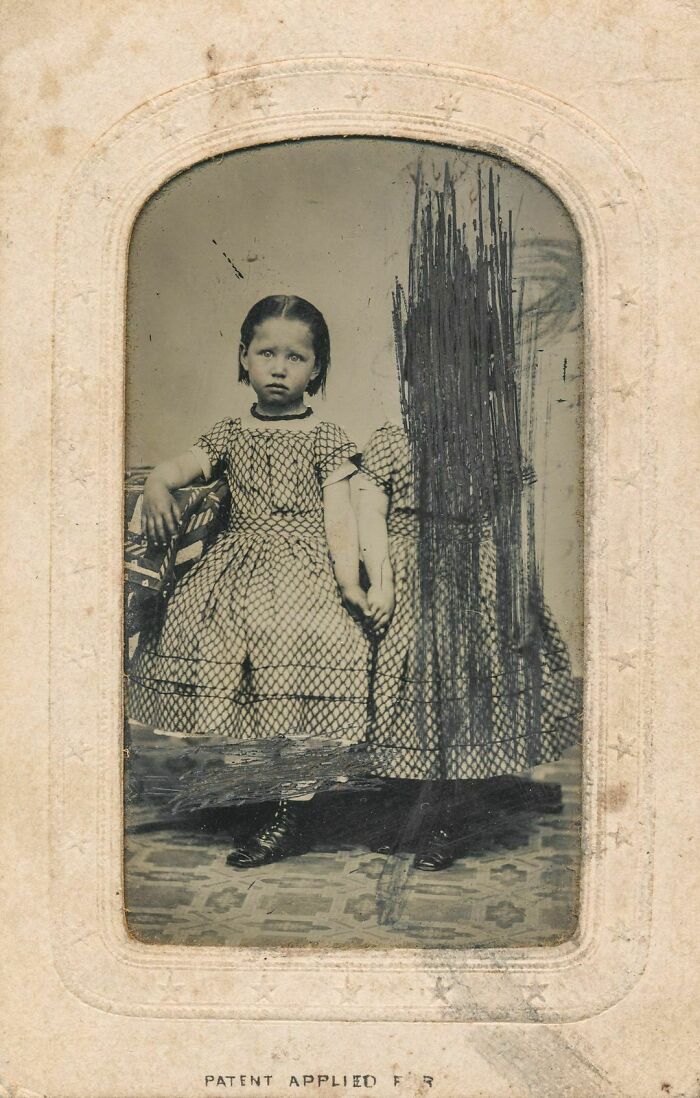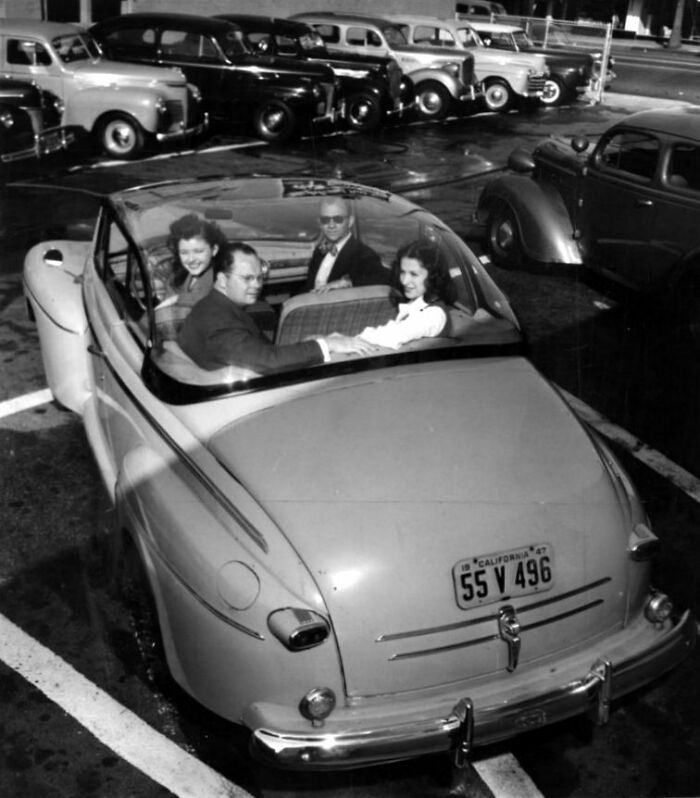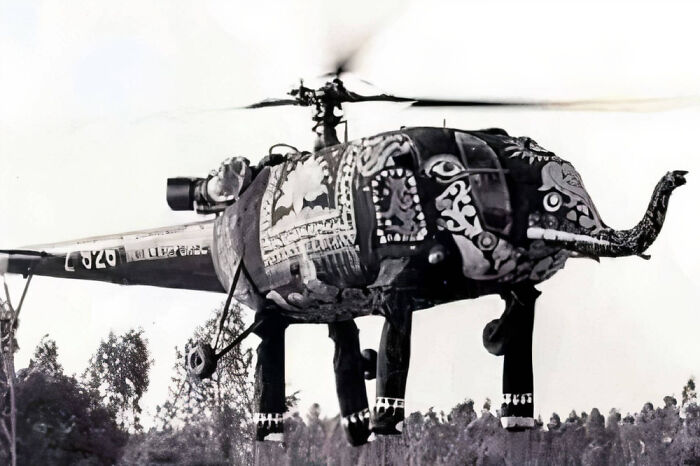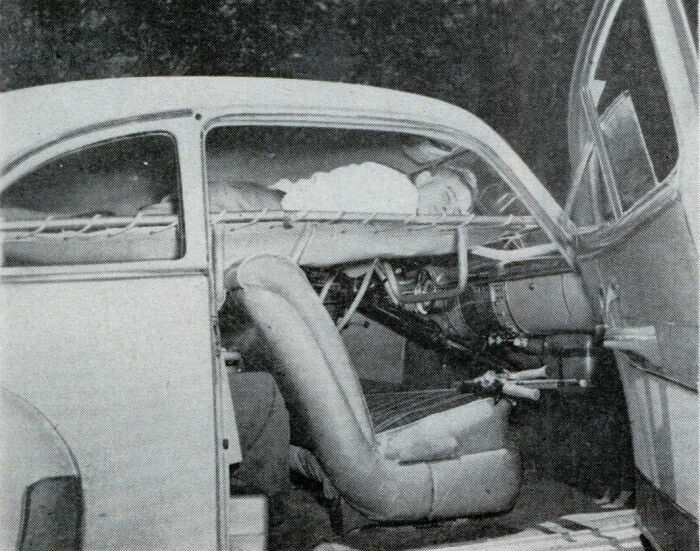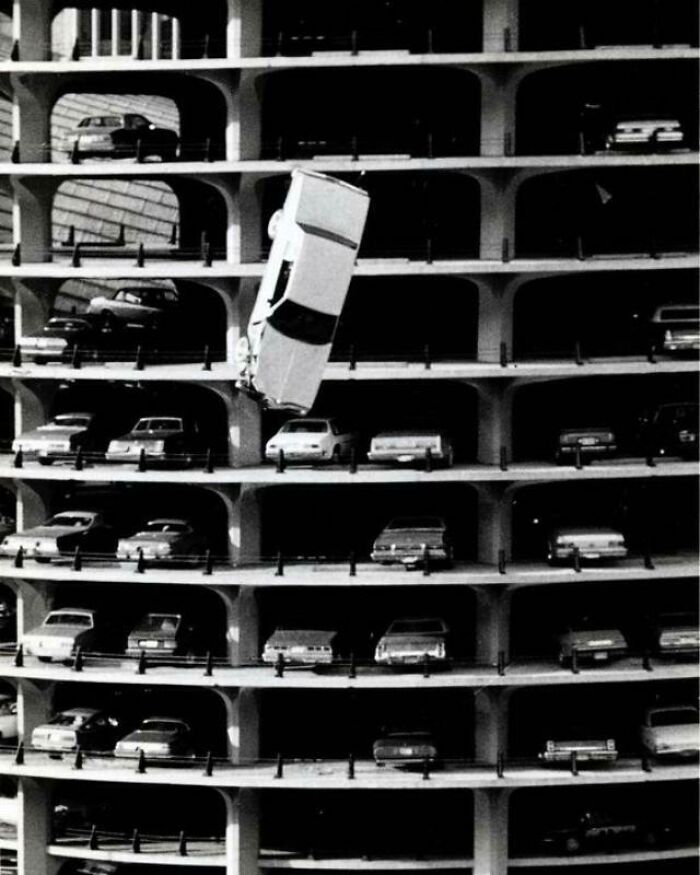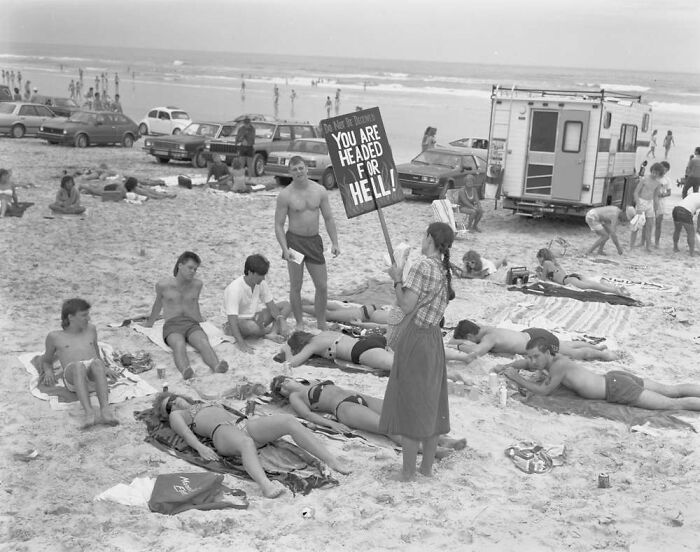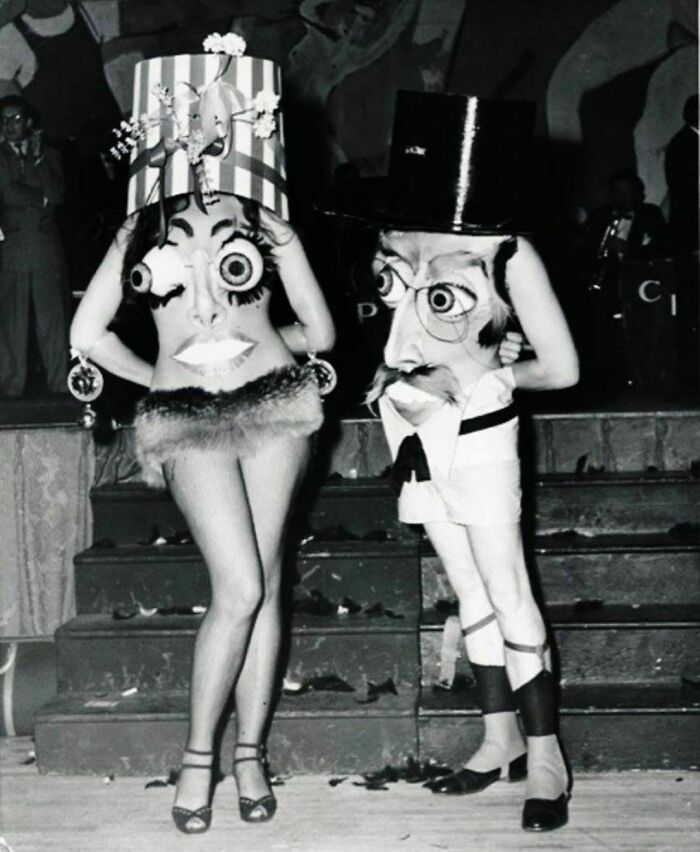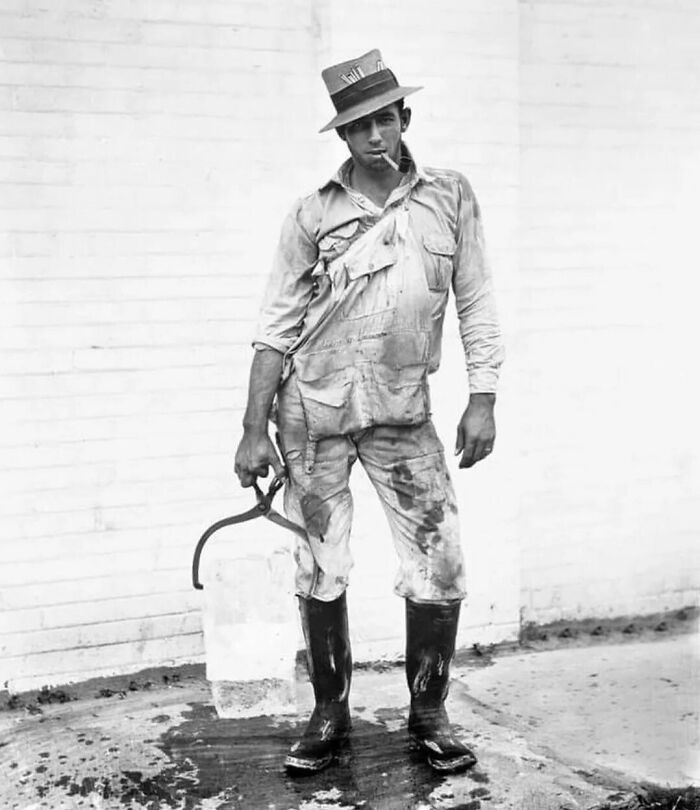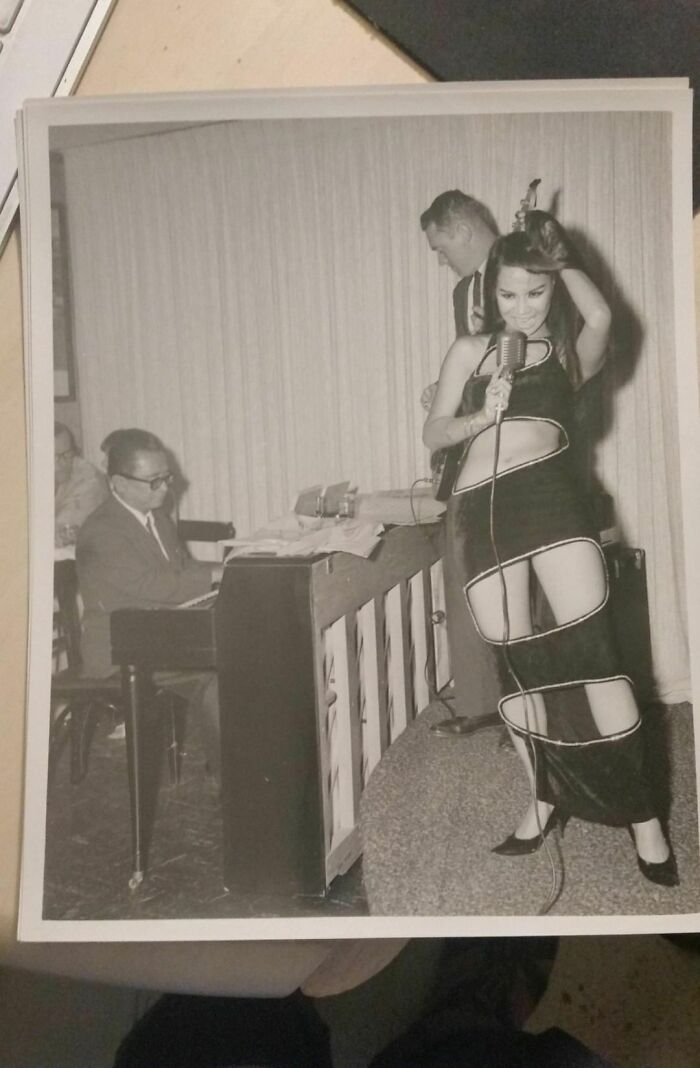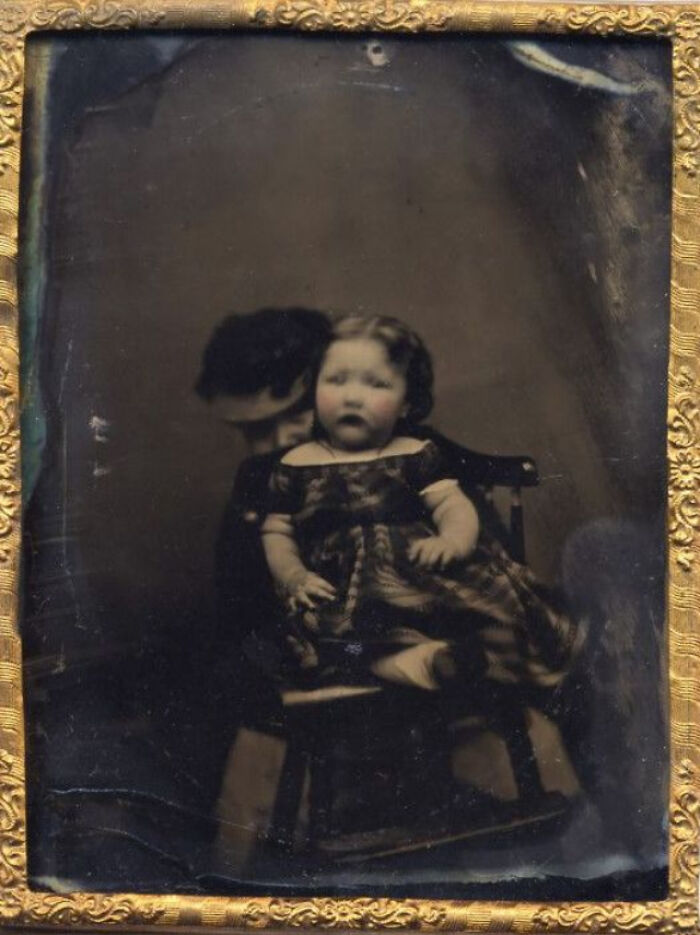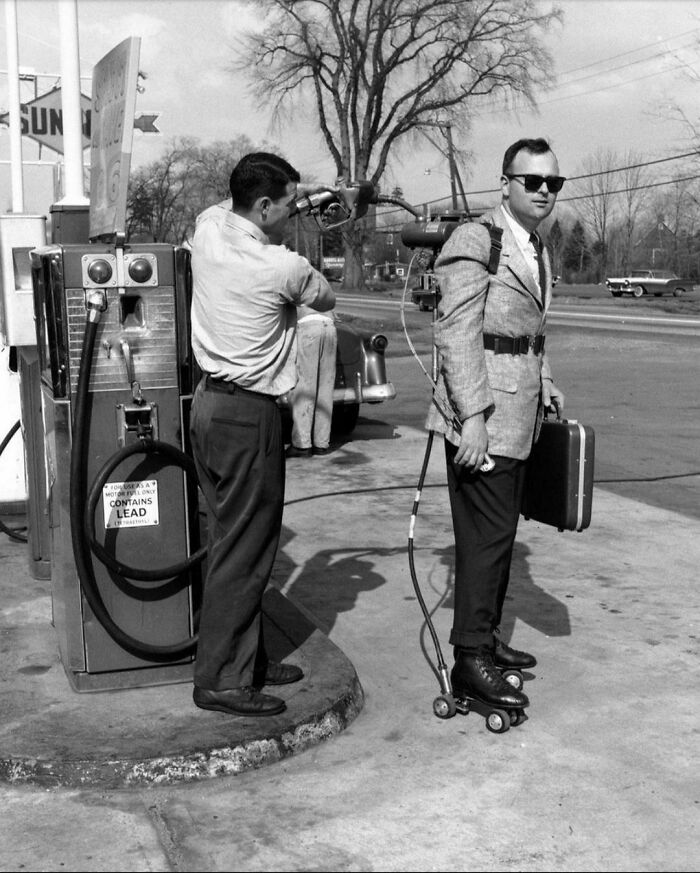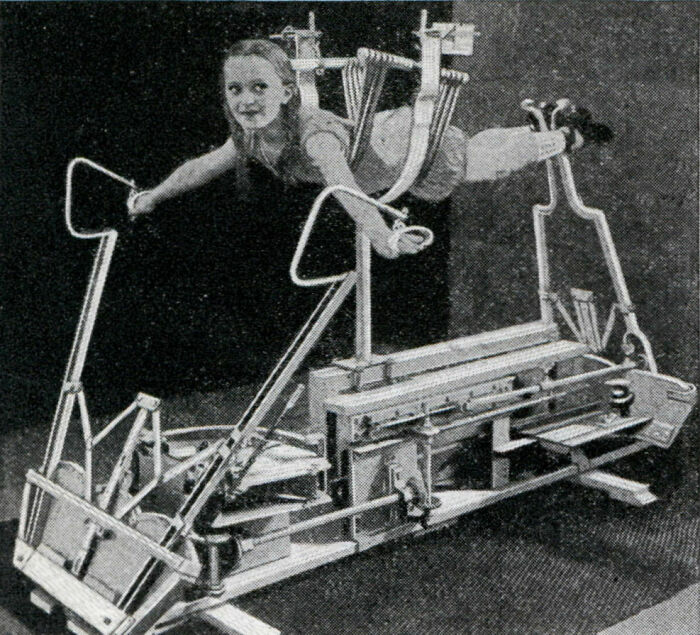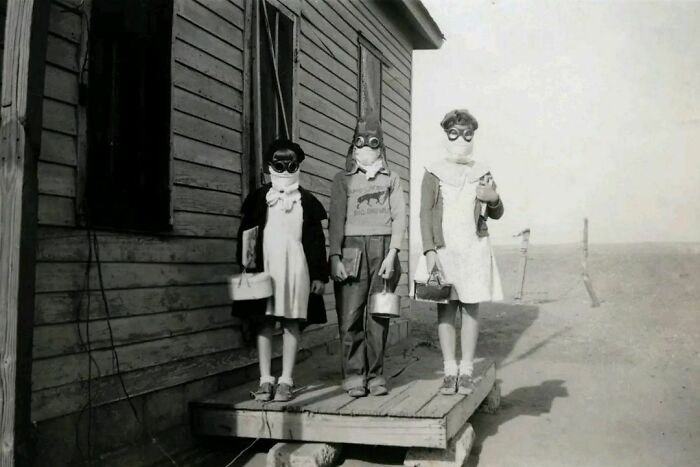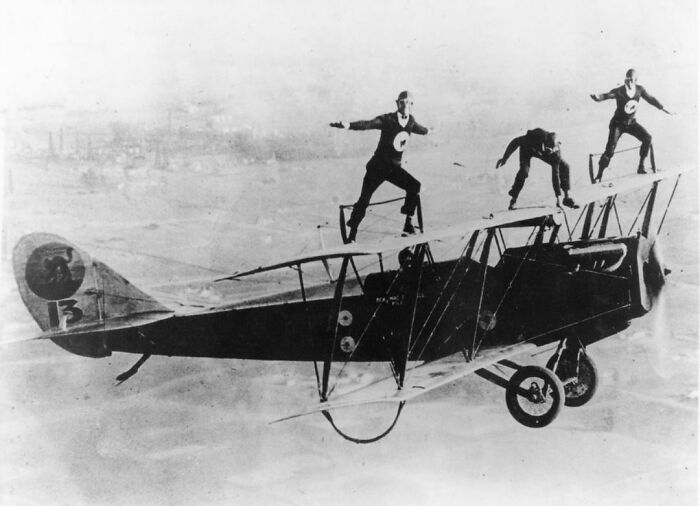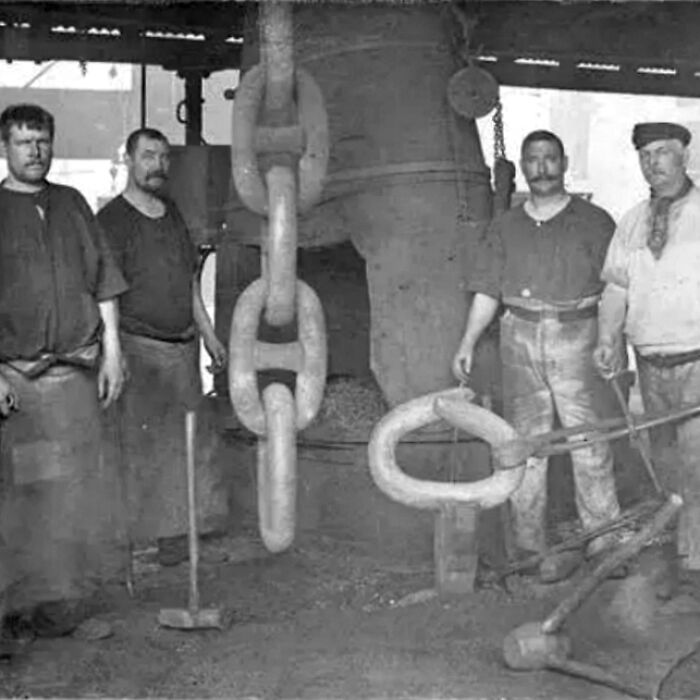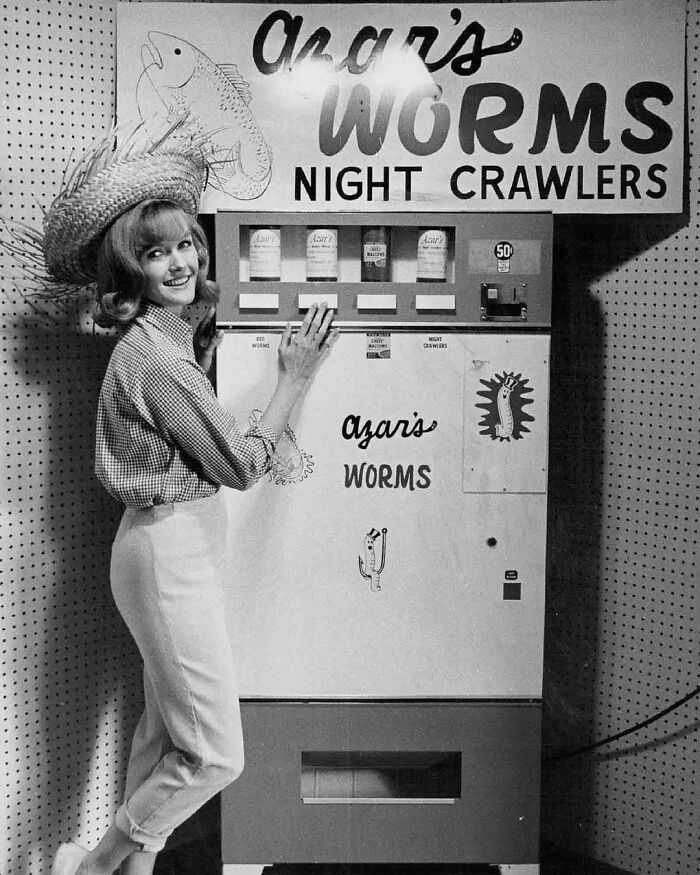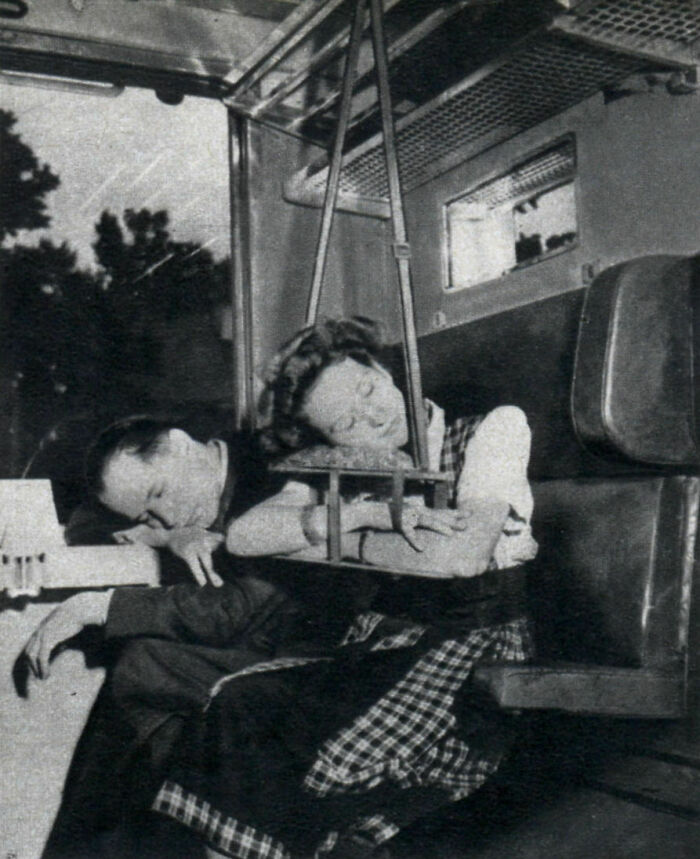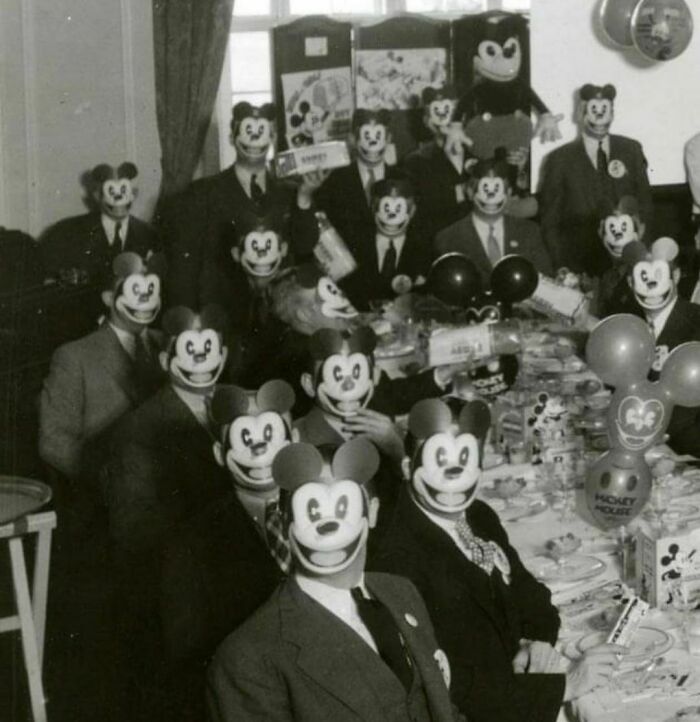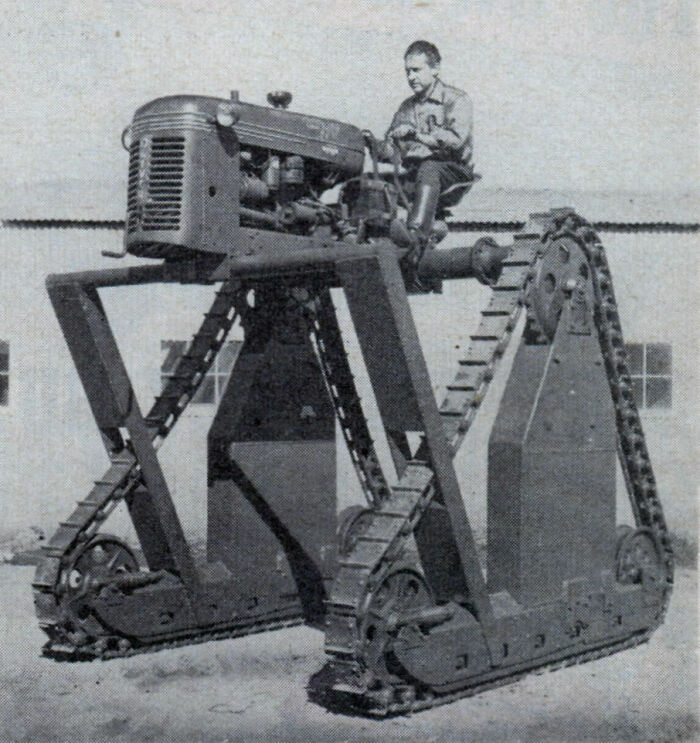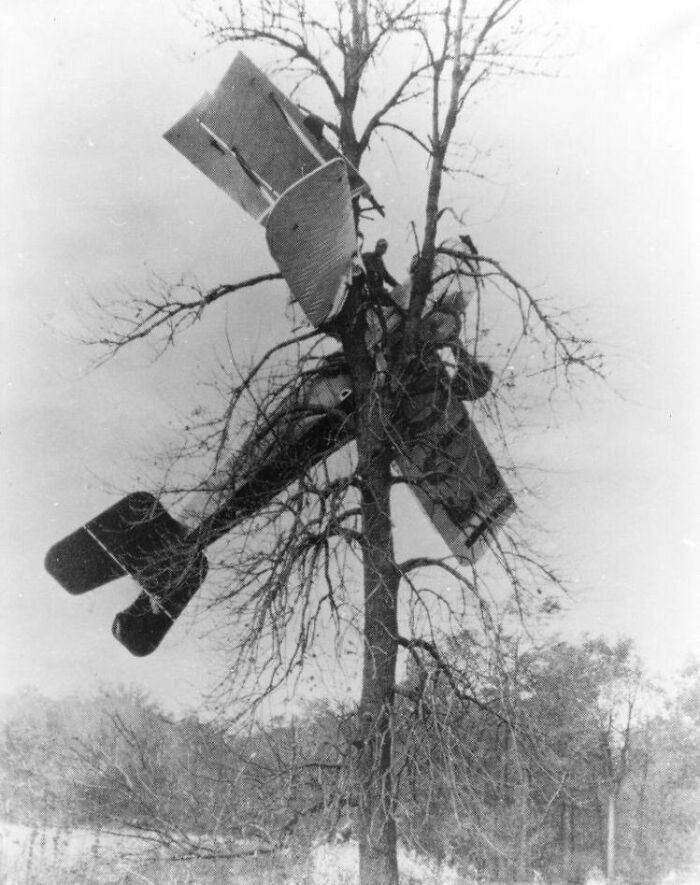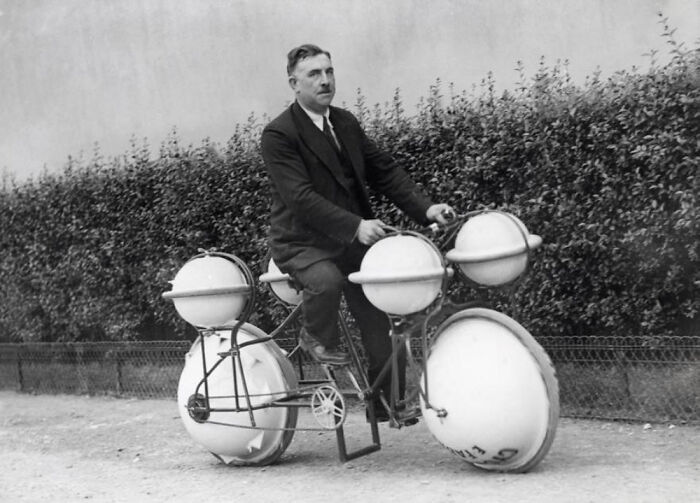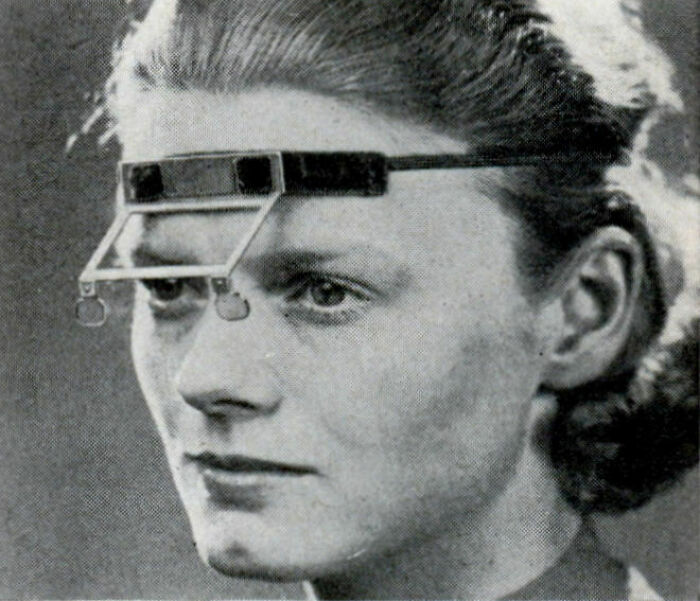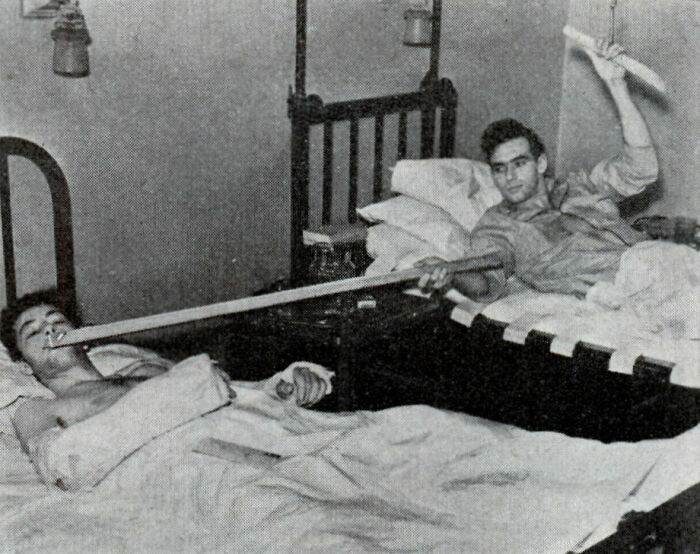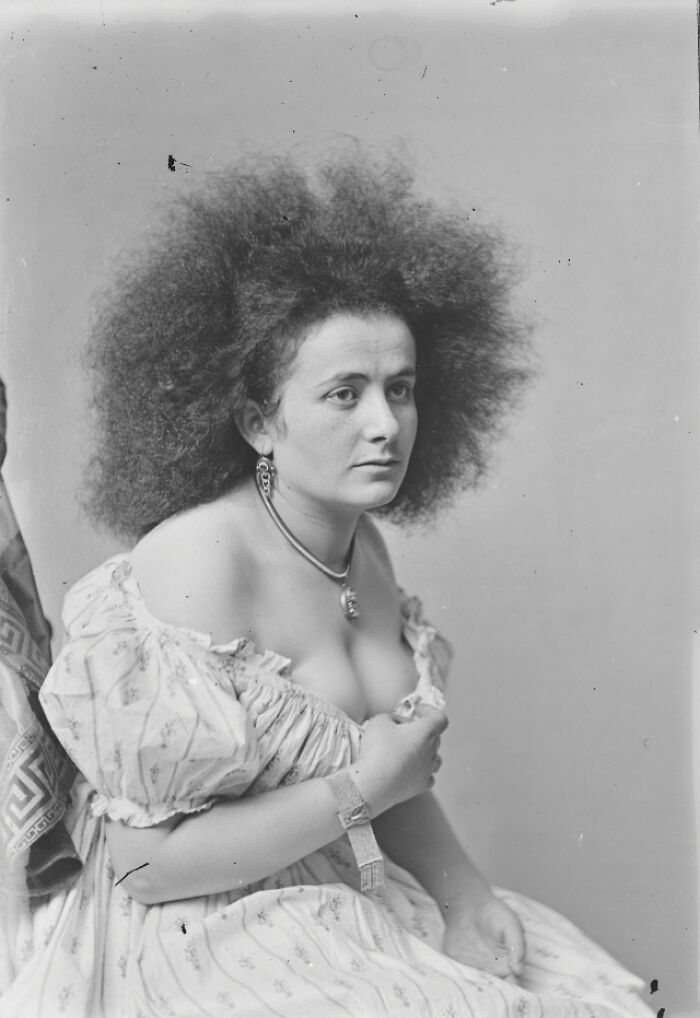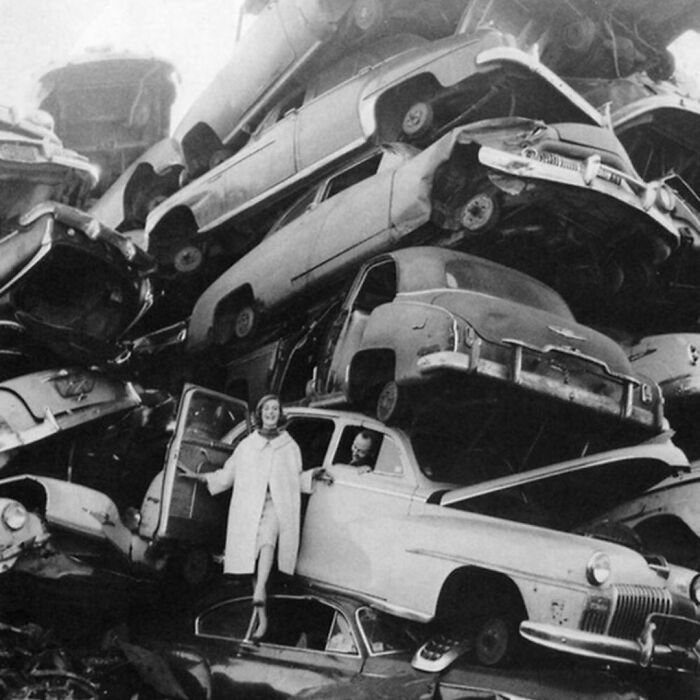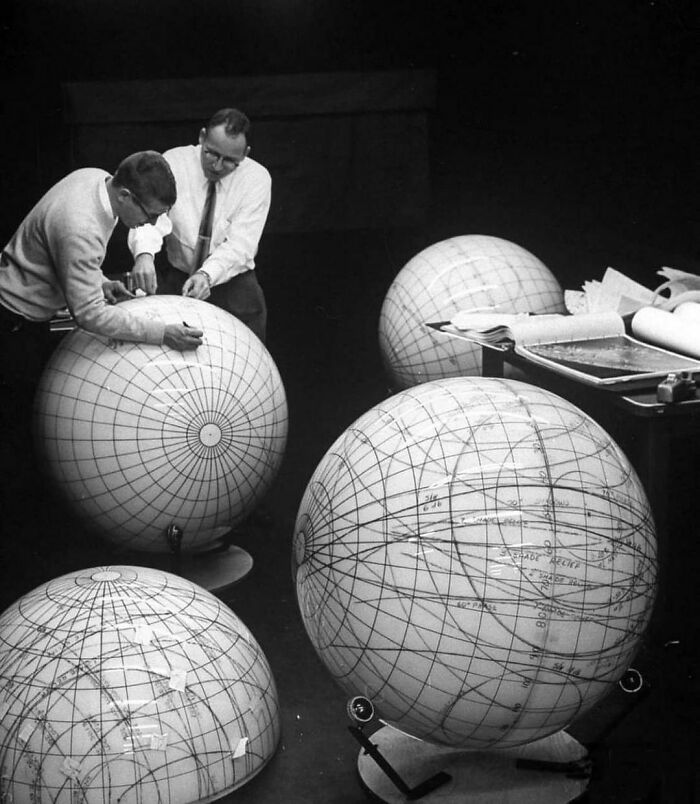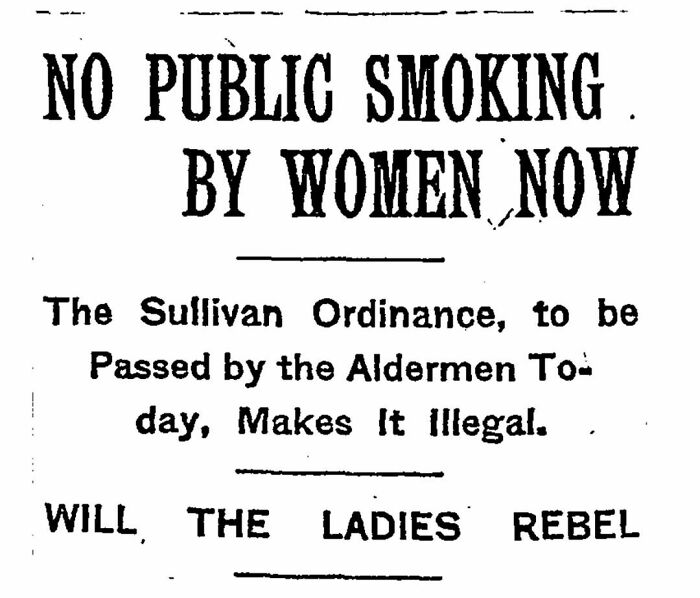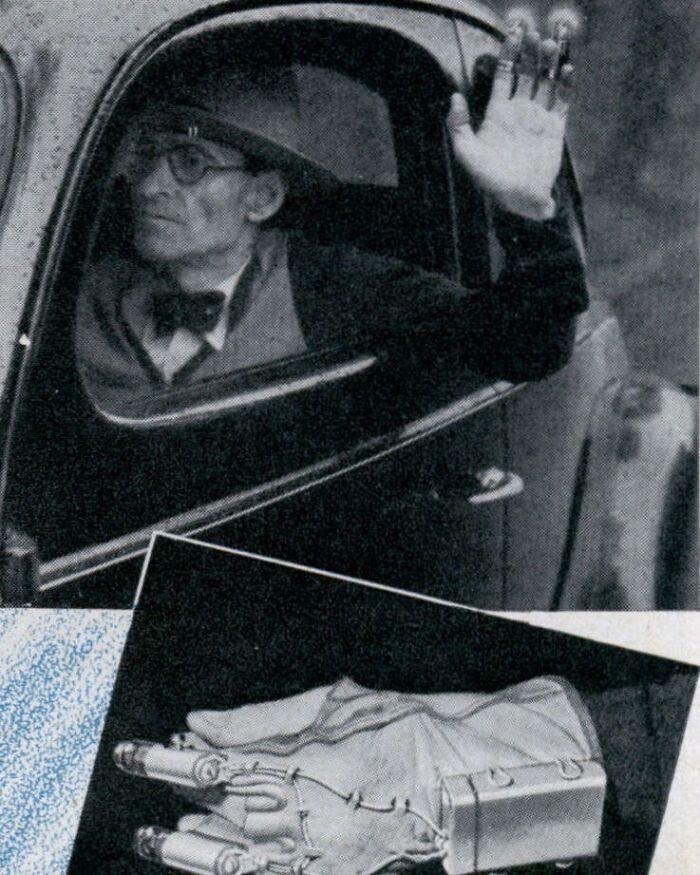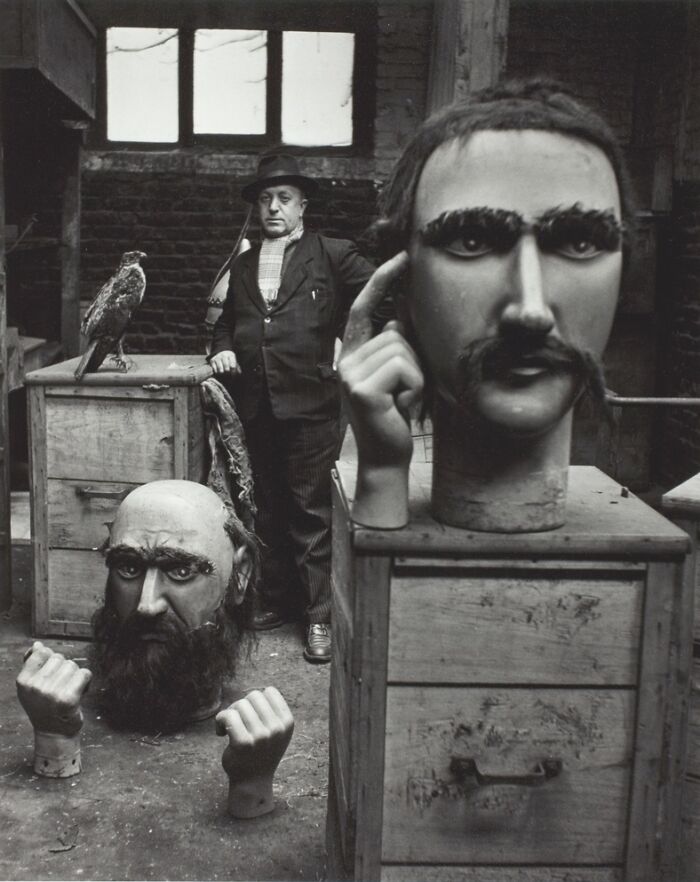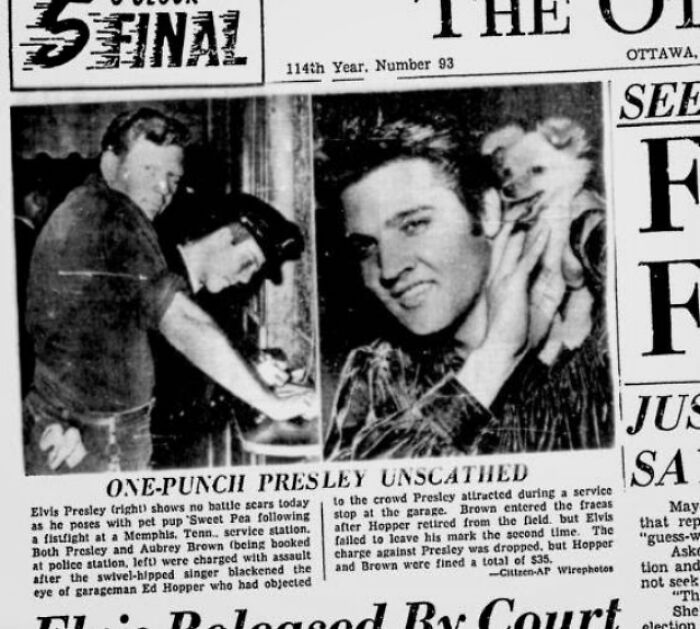History is... well, not necessarily notorious, but definitely oddly characterized as having weird moments. To some extent, that’s quite normal.
Just think about it: in terms of innovation, product design, and overall style, things tend to be weird, even more so when they are just starting out. Heck, if you google medical equipment from the early to mid 20th century, you’re going to see some science fiction madness. Because that’s just how it was.
Now, though, everything is different, and these early iterations were weird. For lack of a better word, but it was definitely a different time. A time documented in this dedicated Instagram page called Got Weird.
This post may include affiliate links.
A Man Posing With A Donkey In His Lap, Ca. 1910s
A Mother And Her Son On Their Way To A Pride Walk, 1985
The Librarian At Lorain Ohio, Public Library Is Looking At The 50,000 Book Chaos After One Shelf Fell Over, The Rest Fell Like Dominoes, 1971
So, as mentioned above, there’s an Instagram page called Got Weird. The page has been around since 2014, during which it has managed to get over the 3,000 post mark and establish a following of 244,000 people.
The tagline reads “everything old is new again” and the page is affiliated with the Vintage Everyday blog, which is all about cool old stuff.
Paparazzi Take Pictures Of Bill Clinton's Cat Named Socks, 1992
The Higher The Hair The Faster The Runner, The Abilene, Texas Track Team, 1967
A Family Out For A Ride In The UK, Ca. 1930s... And Clearly Safety Wasn't An Issue Back Then
I learned a story recently that, only as far back as the 1960's, my Grandfather would ride his motorbike with my aunt in the sidecar when she was only a child. One day my grandfather was riding back to his home and my Nan asked, "Where's (Aunt's Name)?". He didn't realise that a few miles before reaching the house, he took a corner too fast and she flew out the side car. She was thankfully fine and was sat on the pavement waiting patiently for him to come back.
Despite the name, the Instagram page isn’t defined by just that one word, weird. While there are posts about things that range from odd to bizarre, the page also includes interesting historical tidbits, fun facts, and otherwise not widely known or seen footage. It shows parts of history that often don’t make it into the pages of history books, but this thus provides an ideal niche of interest online.
Maureen Murray (#18) Of Alexandria, Virginia Won The Local Princess Diana Look-Alike Contest Which Took Place At The “Champion Sports Bar” In Washington D.c. On November 5, 1985
The contest was held because the Prince and Princess of Wales will be in Washington a week later
This Classroom Celebrating Halloween In The '80s
I remember those cheap plastic masks and I remember how sharp they were.
A Picnic At The California Alligator Farm In The 1920s, Located In The Lincoln Heights Neighborhood Of Los Angeles Between 1907 And 1953
The farm had 20 ponds for the trained alligators where patrons could mingle freely with them
There’s definitely odd stuff, like personal photos with donkeys, police bikes with bars for detainees, and whatever these skate shoes are.
But there’s also photos of JFK moments before his assassination, a black man visiting a swimming pool back in the day, or the Dynasty 605 veering off the runway and crashing into the water.
A Man Experiences Irony As His Car, Laden With Used Tires, Has A Flat Tire, Houston, Texas, 1966
British Actress Jessie Matthews Supporting An Enormous Headdress For The Revue 'Evergreen' (1934)
Shoe Phone From 1965
Got Weird gives off very similar energy to another page that Bored Panda has covered in the past, and that’s Dragon Utopia.
Dragon Utopia is a subreddit that features historical photographs and pictures that showcase the inconvenient, uncomfortable and downright horrible parts in human history, but are otherwise there as a reminder for future generations.
Rosalind Russell Riding Bicycle On The Set Of “The Trouble With Angels” (1966)
‘Flying Saucer’ Gas Stations In Kyiv From The Late 1970s And Early 1980s
A Diver Photographed After Ascending From The Oily Interior Of The Sunken Battleship Uss Arizona. Photograph Taken At Pearl Harbor, Hawaii In The Days Following The Attack On Pearl Harbor In December 1941
While some might view history as boring or irrelevant, those two descriptives couldn’t be further from what this discipline is really all about.
History helps us to understand how we got to this point as a civilization. We are very much different from who we as a concept were a century or two ago. We can gauge into what worked for us and what didn’t—and draw conclusions off of that.
Showgirl With A Stuffed Bird In A Cage On Her Hindquarters At The Latin Quarter Nightclub, New York, 1952
I'm gonna bring back "hindquarters" to replace "cakes", and I will be successful. "Yo, that girl got hindquarters for days!"
These DeLoreans Were All Hiding From Hurricane Dorian In Storage! Delorean Motor Company Florida Posted This, Ensuring All The Cars Stay Safe In The Hurricane
Three Million Volts Hit A Car In The Westinghouse Electric Corporation In Pittsburgh For A ‘Lightning Test,’ Ca. 1940s. The Passenger Remained Unharmed
Besides that, history provides context to the human experience. Records of the 1918-1919 flu pandemic, for instance, gave us an understanding of how the covid pandemic could’ve taken place, with the foreshadowing of the second wave and whatnot. It is the context we need to make sense of our own lives within the world and make guesstimated conclusions based on historical patterns.
With A Category 5 Ranking, Hurricane Andrew Was A Powerful And Destructive Storm That Struck The Bahamas, Florida, And Louisiana In August 1992
At the time, the National Weather Service estimated the storm had caused $26.5 billion in damages, making it the most expensive natural disaster in U.S. history. Total damages would later be surpassed by Hurricane Katrina in 2005 at $81 billion. Ron Magill, Zoo Miami goodwill ambassador and communications director, took these photographs on Aug. 23, 1992. Magill said he believed there were a total of 38 flamingos in the Zoo Miami (then Miami Metrozoo) flock at the time, and they would have all been put in the restroom together. “This was part of a hurricane protocol that required us to round up all of the flamingos in the front lake of the zoo and place them in the ladies public restroom, which was used as a bunker, whenever a hurricane warning was issued,” said Magill. The bathroom was the obvious choice—no windows, a tile floor for easy cleanup, and plenty of room for an improvised bed, made out of hay hastily dumped all over the floor. Most importantly, “it had a ready-made supply of fresh water.” Magill and his coworkers opened up all the stalls, made sure the toilets were full, and set out for the flamingo exhibit to grab the new tenants. The birds were not very cooperative. “These flamingos are flapping everywhere, we’re grabbing them, we’re getting full of flamingo water and stuff,” said Magill. “It got to the point, I’ve got to be honest—I thought, ‘After all this work, this storm better freaking come!’ That’s a cocky young attitude that you have.” But the team managed the job, and as they left the bathroom, Magill turned back for a moment to appreciate their work. He had always been a photography buff, and liked to carry a point-and-shoot wherever he went, even to emergency zoo batten-downs
Mugshot Of John Wojtowicz, Who Unsuccessfully Tried To Rob A Bank On August 22, 1972 To Pay For His Wife Eden’s Gender Reassignment Surgery
Apparently, Wojtowicz had based his plans on the movie, The Godfather (1972), which he had watched earlier that day. 2,000 onlookers, FBI, roof-top snipers, TV crew, and police all gathered at the Chase Manhattan bank in Gravesend, Brooklyn on a hot summer night. Wojtowicz held 7 hostages for 14 hours during which time he demanded food for the hostages, paid the pizza delivery boy wads of cash, threw money at the outside onlookers, shot through the bank's exit rear door (fearing the police would storm it), and accidentally fired a shot after dropping his rifle on the floor. In the end, his robbery attempt failed, and he was arrested and sentenced to 20 years in prison, of which he served five. Wojtowicz’s story was later turned into a movie called Dog Day Afternoon (1975), starring Al Pacino and John Cazale, both of whom, interestingly enough, had starred in The Godfather. For the rights to his story, Wojtowicz was paid $7,500 and 1% of the movie's net profits, which he gave to Eden. After her operation, Eden married someone else before dying of AIDS-related pneumonia in 1987. Wojtowicz attended her funeral and delivered a eulogy. John Wojtowicz spent the rest of his days in New York. At one point, he even applied to work as a guard at a Chase Bank, reportedly claiming, “I’m the guy from Dog Day Afternoon, and if I’m guarding your bank, nobody’s going to rob the Dog’s bank.” They declined. He spent some of his final years on welfare before dying of cancer in 2006
Sad Little Girl Holds Hands With Her Scratched-Out Sister
If anything, history teaches critical thinking, how to be a healthy skeptic and to question everything so as to find the truth in things.
It’s a skill that allows us to process facts and to consider how things work, relate and affect each other. Just by studying the history of what was once a kingdom turned empire and how it got too big for its own good and started to collapse, we get so much insight into how intricately cause and effect functions.
“Glass” Tops For Convertibles, Similar To The “Blisters” And “Bubbles” Made By The Same Company For War Planes, Have Been Introduced In Los Angeles
The tops fasten at the same points as regular canvas tops, and are easily removed for storage in the family garage. Although colorless at this time, a choice of ‘tints’ is planned for the future. The tops are said to be easy to clean and that scratches on the surface of the quarter-inch Plexiglas can be removed by polishing with auto polish or wax. Made by Fabriform Corporation, of Bayseville, Ohio, they are being distributed by a local Ford agency. Shown here in a convertible equipped with a ‘full view’ top are:” Wilda Eggert (left) and Val Eckolt, in front seat; and Jim Dypuy (left) and Sally Hamblin, rear seat, all of the auto agency
Little bit on the warm side on a sunny day. The same principal of attaching a hard roof has been used for years - they were available for my classic in the 1950's and I have one for my modern built in 1999. Makes a big difference if you are going to use a ragtop somewhere with cold wet winters.
Chetak Helicopters Used By Indian Air Force For Ceremonial Flyovers In The 1970s
The exact date is difficult to pinpoint. Some claim that the legend of India’s ‘dancing elephant helicopters’ started in 1977 when the first one of its kind took to the air. Others say that it began earlier. Whatever the case, these colorful adaptations, designed to display military might, industrial strength and the country’s cultural diversity, have entered popular folklore. But to find the origins of these so-called ‘flying elephants’, it is necessary to go back to 1969. In that year, India started building a licensed version of the popular French Aérospatiale Alouette III. It was manufactured by HAL and named Chetak – after a warhorse belonging to the 16th century King Maharana Pratap. The name meant devotion, bravery and resistance to occupation. By modern standards, the Chetak is a light utility helicopter at best. But at the time it was an impressive machine. More than 300 of them were built – not including the original French Alouette IIIs purchased by India – mostly serving with the Indian Air Force (IAF), and it was only in the 2010s that the service began to consider replacing them. A participant in many local conflicts, the aircraft became something of an icon in India, akin to the Vietnam War-era Bell UH-1 in the US or the Mil Mi-8 in the post-Soviet countries. However, it wasn’t until the annual Republic Day parade, held in New Delhi at some point in the 1970s, that the Chetak was lifted into stardom
In 1954, The Traveler Could Install A Relief Bunk In His Car – An Aluminum Cot That Extends Above The Seats From Front To Rear
While one person drives the other can sleep in full-length comfort. Made of lightweight tubing, the cot was supported by legs resting above the instrument panel, on top of the two seats, and on the rear-window ledge. It was quickly removed or installed and could be folded for storage. When folded, it was easily packed into place along with any reasonable amount of luggage. The bed could be adjusted for use as a regular cot.
And the fact that history can be weird—a side-effect of culture, society, innovation, and the like—only embeds the historical experience. For we as a species are drawn to weird things. Well, weird, disgusting, otherworldly, what have you. It captivates us, so we could process and focus on it, making sure our evolutionary side internalizes it and stops thinking it’s out to get us.
A Stunt Car Drives Off The Parking Garage At Marina City Towers During The Filming Of The Hunter, Starring Steve Mcqueen On Sept. 21, 1979, In Chicago
The car crashed into the Chicago River below. This would be McQueen's last movie before his death in 1980
Puritan Against Too Revealing Swimwear On Daytona Beach, Ca. 1982-83. (Photo By Keith Mcmanus)
This is one of the worst things about religion- yes, believe whatever you want to believe and live whatever life you want to live but please don't force it on others. May sound harsh but any respect, understanding and patience goes out the window as soon as you force your life choices on me.
Two People Are Wearing Painted-On Eyes At A 1955 Art Student League Ball In NYC
And, if you use this rudiment of evolution to your advantage, you might just become a very oddly interesting person at any party with the fun facts.
But, all jokes aside, it sticks with us. Teaches us that this was a thing and we can now draw conclusions from it. Even more so than if it wasn’t weird. But if you’re genuinely interested in history, then it’s gonna work either way.
In 1928, A Figure Known As The Ice Man Could Be Seen Delivering A 25-Pound Ice Block In Houston, Texas
This snapshot reflects a time when the ice trade was a highly profitable industry, primarily during the 19th and early 20th centuries. Ice was harvested from natural sources such as ponds and streams and then transported via railroads or ships to various destinations worldwide. An intricate network of ice wagons was responsible for the final distribution of this valuable commodity. The roots of this industry can be traced back to 1806 when Frederic Tudor, also known as the Ice King, initiated the ice trade in New England by shipping ice to his affluent clientele in the Caribbean. Over the years, his enterprise expanded to encompass regions like Cuba and the southern United States. Eventually, ice was being shipped to destinations as far-flung as India, Australia, China, and South America. At the zenith of the ice trade, this sector in the United States employed a staggering 90,000 individuals and relied on the labor of 25,000 horses. The demand for ice experienced a notable upswing during World War I. However, once the war concluded, the ice trade saw a precipitous decline due to the advent of refrigeration cooling systems. By the 1930s, modern refrigerators began to gain prevalence in households, and by the 1950s, they had become nearly ubiquitous in both the United States and Europe. This technological advancement rendered the ice trade largely obsolete
“Will You Just *look* At My Grandpa Playing Piano!”
Vintage Studio Photos Of Victorian Baby With Their Half-Face Hidden Mother
Have you ever had difficulties trying to get a baby to sit down and pose for a picture? It’s a massive headache now, but it was even harder for mothers in the Victorian era when vintage photography technology made posing very difficult. To understand these photographs, you first need to understand the technical realities of early photography. Unlike the quick snap of picture-taking today, the subject of a portrait in the 19th century needed to sit still for a lot longer. If you wanted a daguerrotype of your baby, you needed to keep the sucker still for between 60 and 90 seconds. Because of this, mothers were frequently enlisted to keep their children still during the shot. But instead of posing with the children, mothers instead opted to obscure themselves, resulting in photographs in which a mother is holding a child while completely covered in a brocade
If you’ve enjoyed this listicle, you can also continue on to another article that we’ve covered on Got Weird. Either that or you can visit the horse itself.
But if you have stuff to do, then why not do that stuff, but not without having left a comment sharing what you thought of any of this in the comment section below!
Mixing Hot Water With A Moving Vehicle Is Probably Not The Smartest Idea Ever, But That Didn’t Deter German Company Hertella From Producing And Marketing A Coffee Machine Specifically Designed For The Volkswagen Beetle
The Hertella-Auto Kaffeemaschine could be mounted straight onto the dash of a ’59 Beetle, providing occupants with a steaming hot cup of coffee as and when they desired. The Kaffeemaschine as having no on/off switch. When ready, the coffee dispenses straight into a porcelain cup fitted with a metal base that attaches magnetically to the Kaffeemaschine helping to keep things secure and safe. Little known is of the Hertella coffee maker, only that it was available in either 6- or 12-volt versions and that it cost DM65 (Deutschmarks). For context, the price of a new Beetle in 1959 was DM3790
The Self-Propelled Skates That Were Produced By The Motorized Roller Skate Company Of Detroit, Beginning In 1956
The company was founded in 1955 by an intractable inventor from Lincoln Park, Michigan, named Antonio Pirrello. Retailing for $250, that’s an astounding $2300 in today’s economy, these skates feature a 19-pound gasoline motor that is worn like a backpack. The gas connects to the right skate to push while the skater holds her left foot out in front to steer. A second cable connects to the hand-held clutch to regulate speed. Quite a lot of speed. These skates can roll at up to 40 miles per hour! Mr. Pirrello and his motorized skates were featured in the magazines Life and Popular Mechanics and were guests on You Asked for It and The Today Show
On A Casual Glance At The Contraption Shown Here In The Photo, You Would Think It One Of Rube Goldberg’s Latest Inventions
But you’re wrong, for it’s a machine to teach perfect swimming strokes, in 1931. The student rests in a belt cradle as shown, while his feet and hands connect with handles in the mechanical arms. A system of gears and levers to which the guide arms are connected serve to compel movements that conform to correct outlines as set forth by swimming experts
Three Children In Oklahoma On Their Way To School During The Dust Bowl In 1933
The 13 Flying Black Cats Was A Professional Aerial Exhibition Team That Started Around 1925, Advertising They Would Do Anything For A Price
They performed primarily at air shows around Los Angeles and the Southwest but found their niche doing movie newsreels. The group was based at the Burdett Airport located at Western Avenue and 104th Street in Los Angeles (present-day Inglewood), where many worked as pilots and mechanics. Burdett Fuller was a former Naval Reserve flyer and started a flying school and passenger air service in 1919. Among his multitude of students – he soloed about 400 – he taught Jack Frye how to fly, who in turn taught Ronald “Bon” MacDougall. In 1923, Burdett, Frye, and MacDougall teamed up and established the Burdett Air Port and School of Aviation. In August 1925, flying students William E. Matlock and Paul E. Richter graduated from there. These young men – MacDougall, Frye, Matlock, and Richter – along with their friend, Ken Nichols, who would do “anything in aerial stunts,” formed the core of the famous 13 Flying Black Cats and dazzled weekend crowds at the airport with their breath-taking aerial performances. On July 5, 1925, thousands showed up for the “Burdett Field Air Meet” to watch the air races and stunt flying exhibitions, which also included Frank Clarke, Art Goebel, Jack Frye, Frank Tomick, and Dick Grace. The 13 Black Cats were an evolving group with many members including women, who were never official members. With so many coming and going, many of the participants never received their credit due. The 13 Black Cats charged one hundred dollars for an ordinary plane-change. It cost five hundred dollars to make a change made from an upside-down aircraft to one flying right side up. A crowd thrilling addition was a faked accident with the apparent victim falling off the aircraft and tumbling about four hundred feet before a thin cable suddenly opened a hidden parachute, to the gasped relief of the audience. The Black Cats were the first to develop a set scale wage for aerial stunts, which provided a model for the first movie stunt pilots’ union, founded by aviatrix Florence Lowe “Pancho” Barnes (1901-1975) in 1931
Titanic’s Centre Anchor Was At The Time And For Some Time To Follow, The World’s Largest Anchor Ever Forged By Hand
In its overall size the anchor measured an impressive 18ft 6in in length. The cast steel head of the anchor measured 10ft 9in in width and the anchor weighed an incredible 15ton 16cwts
So that's how they made it. Just a simple blacksmith shop with four workers. Amazing.
Here's An Azar's Worms Vending Machine From 1965, Just In Case You Run Out Of Night Crawlers At Home
In 1949, For Railroad Travelers, Dr. Igo Seeger Of Vienna Had Came Up With A Sleep Hanger That Held The Passenger In A Comfortable Sleeping Posture While Sitting Upright
The hanger is supported from overhead by an adjustable strap. A shelf holds the folded arms of the traveler, while another shelf has a pillow to support the head
I would be the first person in the world to be strangled by a train stopping unexpectedly.
“Sales Meeting Of Ce-Lect Baking Co. Introducing Mickey Mouse Bread Campaign, Hotel Sheraton Boston, June 16, 1936.” From The Collection Of Mel Birnkrant
Ĵ̛̖͓̭O̾̓̒ͫ͏̼̬͙̮I̳̜̖̫̭̟̎ͮͨ͝N͍̭̟̤̖̦̫ͪ͞ ͓͍̰͈͙̤̹̘̅̃͊͡T̫͔̤͐̔́ͅH̶̗̼̙̮̟͚̳͋ͅE̷͇͎͙̖̊̎ ̞̥̃͡C̛̭̰̜͎͇͓͉̝ͪ̿Ṷ̼̘̥̼͖̿͡L͍̻̈́ͮ̏̾̀T̛̙͙̻̱̳̞̊͛
Moving Slowly Through The Sweet-Corn Fields Of California In 1954 Was A Weird Tractor On Stilts
The tractor was used to dust and detassel the high corn. The builder started with a 21-horsepower crawler tractor. He raised the tractor chassis including the motor and transmission so there would be 78 inches of clearance beneath it. Side frames – the “stilts – support the tractor in this position. Additional sprockets and links of track were installed on each side. The result was a tractor that rolls through the high corn, dusting and detasseling it even during wet weather when rubber-tired tractors bog down in the mud. It has 6-1/2 feet clearance and straddles two rows of corn while dusting 12. A framework across the back holds the dusting equipment. During detasseling, men ride on hangers dropped down between the rows alongside the tractor
That is an Oliver Tractor. Oliver Farm Equipment Company was an American farm equipment manufacturer from the 20th century. It was formed as a result of a 1929 merger of four companies: the American Seeding Machine Company of Richmond, Indiana; Oliver Chilled Plow Works of South Bend, Indiana; Hart-Parr Tractor Company of Charles City, Iowa; and Nichols and Shepard Company of Battle Creek, Michigan.
Stunt Pilot Howard Casterline Crashes His Plane "Jennie" Into A Tree In Hartford City, Indiana, Ca. 1920s. He Survived In The Crash
A Hybrid Among Vehicles, An Amphibian Bicycle That Could Travel On Land Or Water, Was Demonstrated By Its French Inventor At A Paris Exposition In 1932
Its wheels are hollow, bulbous floats that, with the aid of four smaller globes on outriggers, sustain it in the water. All of the floats revolve freely like wheels, resulting in a minimum of drag. When the rider pedals across the water, fins on the rear wheel serve as paddles to drive the machine forward. For a ride on dry land, the outriggers supporting the outer floats may be folded up clear of the ground. Proof that the floats would be sufficiently buoyant to support the rider was given when the inventor navigated his device, without difficulty, across a large swimming pool
To Reduce The Blinding Glare Of Approaching Automobile Headlights, A Novel Eye Shield Has Been Introduced In 1936
Strapped to a band worn about the head, a metal frame extends from the forehead and holds two ovals of amber glass in front of the eyes, where they are normally just out of range of direct vision. A slight turn of the head places the glass ovals between the eyes and the rays of oncoming car lights.
People Watching The Hancock Oil Refinery Fire At Signal Hill, California. May 22, 1958
It was one of the largest fires in California history, and burned for three days
That bronze-colored car on the right is a 1953 to 1955 Chevrolet Corvette. These were the first years Corvettes were made, rare when new, and now worth a fortune!! The brown car is a 1953 Chevrolet Model 1500 (the budget model), and the light-colored convertible is a 1949 to 1951 Ford.
Because A Patient With Two Broken Arms Was Unable To Hold A Cigarette, Authorities In A St. Louis, Mo., Hospital Devised The Odd Six-Foot Holder In 1938
A roommate lights a cigarette, places it in a hole in the end of the stick, and holds it to his friend’s lips. To raise his body for the purpose, he uses a support suspended above his bed, as shown. A nail in the end of the holder is used to feed the patient candy
Among The “Human Curiosities” In P. T. Barnum’s American Museum Was A Supposed Escapee From An Ottoman Harem, A Figure Marketed As Both The Pinnacle Of White Beauty And An Exoticised Other
Betsy Golden Kellem investigates the complex of racial and cultural stereotypes that made the Circassian beauty such a sideshow spectacle.
Car Junk Yards From Days Gone By
US Scientists Study The Phases Of The Moon On Lunar Models In Preparation For An Eventual Manned Flight To The Moon, 1962
On January 21, 1908, It Became Illegal For Women To Smoke In Public In New York City
That day, the Committee on Laws of the Board of Aldermen unanimously voted to ban females from lighting up in public places. The law, called the Sullivan Ordinance, put the responsibility of preventing women from smoking not on the women themselves but on business owners. It was named after the man who proposed it: Alderman Timothy “Little Tim” Sullivan. According to reports, Sullivan had never seen a woman smoke in public but was repulsed at the thought of it. Right after the ordinance was enacted, on January 22, Katie Mulcahey, the only person cited for breaking this ordinance, was fined $5 for smoking in public and arrested for refusing to pay the fine; however, the ordinance itself did not mention fines nor does it ban women from smoking in public. “I have never heard of this new law and I don’t want to hear about it. No man shall dictate me,” she reportedly told the judge. She was released the next day. The mayor at the time, George B. McClellan Jr., vetoed the ordinance two weeks later
Of course. Man passes an ordinance forbidding something women *might* do.
In 1939, Asked To Make A Speech On Motor Safety, Williams Invented This Signaling Device For Drivers Instead. A Dry Cell Supplies Current To Light Bulbs, One White And The Other Red, On The Fingers
Les Géants Du Nord (The Giants Of The North), 1951. (Photo By Robert Doisneau)
I need more info...what were these used for? I need to go to google now because this tells me nothing!
Oct. 18, 1956: 21-Year-Old Elvis Presley Pulled Into A Memphis Gas Station Where He Started To Attract A Small Crowd Of Autograph Seekers
After repeatedly asking Elvis to move on so he could resume normal business, station manager Ed Hopper slapped Presley on the head and found himself on the receiving end of a punch in the face from Elvis. Station employee Aubrey Brown tried to help his boss, but was no match for Presley. After police are called, Hopper and Brown were charged with assault and were fined $25 and $15 respectively

 Dark Mode
Dark Mode 

 No fees, cancel anytime
No fees, cancel anytime 


